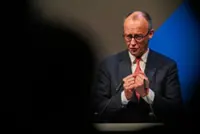LONDON: Britain’s royal family has been forced to radically change the way it communicates because of social media, after speculation ran riot about the health of Catherine, Princess of Wales.
The 42-year-old princess, widely known as Kate, last week announced that she was receiving cancer treatment, two months after having abdominal surgery.





